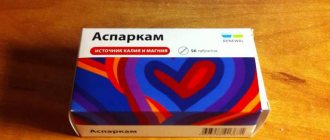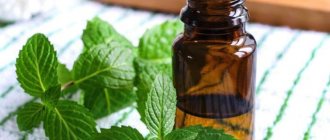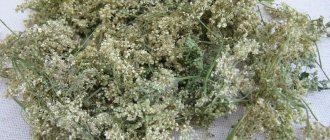Vitamin B3 is an essential element for the human body, as it helps transform food into energy. Without it, cells will not be able to develop normally and perform their function.
The substance dissolves in water, so the body cannot store it for future use, but when taken in excess, it easily removes the excess naturally.
Other names for vitamin B3: niacin, vitamin PP, nicotinamide and nicotinic acid. All these forms are found in foods.
Depending on the form in which niacin enters the human body, its effect on organs and systems differs, namely:
- Nicotinic acid: As a dietary supplement, this substance is used to reduce blood cholesterol levels and also to reduce the risk of developing heart disease.
- Niacinamide or nicotinamide: This form of niacin has no effect on cholesterol, but has equally important functions. The supplement is used in the treatment of psoriasis and to reduce the risk of non-melanoma skin cancer.
Cells can produce niacin on their own. To do this, the body will need proteins containing the amino acid tryptophan. For example: a person eats turkey, which is rich in tryptophan. The liver receives this acid and transforms it into niacin.
- Application in medicine
- Consequences
- Drug interactions
Pharmacokinetics of niacin
Niacin is rapidly absorbed from the gastrointestinal tract and converted to nicotinamide. Cmax after taking the vitamin orally is 45 minutes (the absorption process occurs in the liver). Synthesis of vitamin B3 can also occur in the intestines under the influence of bacteria from tryptophan ingested in foods.
The half-life of the substance is 45 minutes (the kidneys are responsible for its elimination). If a person takes the drug in a large dosage, the vitamin comes out mostly unchanged.
What foods contain niacin?
In ampoules
Intramuscular and subcutaneous injections are allowed to be administered independently, but you must remember that the injections are very painful. Vitamin PP in ampoules is sold freely in pharmacies, but the dosage and course of treatment must be discussed with a doctor. It is necessary to choose the right place for the injection. The optimal areas are the upper square of the buttock, the upper third of the shoulder, and the outer surface of the thigh. For each subsequent injection, a new site is selected. For intramuscular administration, 1%, 2.5%, 5% solutions are used.
What foods contain vitamin B3
Sources of vitamin B3 are products of plant and animal origin. The highest content of niacin is found in meat, cereals, poultry, and fish. B vitamins are also added to energy drinks, and in higher dosages.
!
You can get the amount of this vitamin from your daily diet.
Animal products fortified with niacin include chicken breast, canned tuna, beef, eggs, salmon, milk, heart and beef liver.
Among plant foods, vitamin B3 is found in large quantities in peanuts, lentils, carrots, burdock root, chamomile, almonds, green peas, raspberry and dandelion leaves, mushrooms, sunflower seeds, tomatoes, potatoes, etc. In tablets, vitamin B3 is presented in popular drugs and vitamin complexes.
The role of vitamin PP in the human body
Vitamin PP is needed by the human body because it is part of very important enzymes, namely nicotinamide adenine dinucleotide (NAD) and nicotinamide adenine dinucleotide diphosphate (NADP). Thanks to these enzymes, the respiration of cells and tissues, the process of oxygen-free oxidation and the exchange of all other nutrients in the body occur.
The main functions of vitamin PP are:
- converting food into energy;
- production of hydrochloric acid for the digestive system;
- repairing chemical damage and breaks in DNA;
- formation of various hormones;
- normalization of glycemic regulatory function of the liver.
Niacin: instructions for use
Nicotinamide is taken orally (by mouth) or parenterally (by injection). For prevention, adults can be prescribed a dosage of 0.015-0.025 g once or twice a day, and for younger minors - 0.005-0.01 g.
For pellagra, niacinamide is taken for up to 20 days. Dosage for an adult – 0.05-0.1 g 3-4 times a day; for a child – 0.01 -0.05 g two to three times a day.
When treating other diseases, nicotinamide is taken two to three times a day, 0.02-0.05 g (adults) and 0.005-0.01 g (children).
For intravenous and intramuscular injections, 1-2 ml of a one percent, 2.5 percent or five percent solution are administered. One or two injections are given per day.
Expert opinion
Before starting to use the drug, be sure to go for a consultation and receive individual recommendations from a specialist on taking or injecting niacin. Remember that this substance must be taken in strictly dosed doses, as if consumed excessively, it can cause side effects and cause harm to the body.
Vascular surgeon, phlebologist
Osipova Ekaterina Yakovlevna
Nicotinic acid in the beauty industry
Vitamin B3/PP is regularly used in cosmetology. With the help of drugs you can improve your health, improve your facial skin and hair condition. We suggest considering the popular uses of niacin.
For face
Nicotinic acid is the main element in the nutritional and regenerative process of cells. In addition to its beneficial effect on the functionality of organs, niacin becomes a reliable assistant in the fight for the beauty and health of the skin, which is why it is often used for rejuvenation.
If there is insufficient amount of the substance in the body, the first signs often appear on the skin: red spots, itching, decreased elasticity.
Rated world companies use a 4% solution of nicotinic acid in facial skin care cosmetics. The vitamin is freely available in every pharmacy, so you can add it to your favorite creams yourself.
Positive effects of nicotinic acid on facial skin:
- dilates blood vessels;
- improves blood circulation;
- removes excess fluid from tissues;
- has an anti-inflammatory effect;
- retains moisture necessary for tissues;
- promotes regeneration;
- cleanses the skin and improves its color.
In clinical settings, scientists have discovered another useful property - nicotinic acid reduces the likelihood of skin cancer.
Face mask recipe
An ampoule of nicotinic acid is added to the usual lotion and cream (1 ampoule per 50 g of facial product). The vitamin product is applied as a standard cream and, if necessary, washed off with warm water. It is advisable to mix the drug in a separate small container, since prolonged use of the substance leads to an overdose.
For hair growth
Nicotinic acid is considered a reliable remedy for accelerating hair growth. A small contact of the substance with the skin can provoke an allergic reaction. The allergy in the form of redness will disappear within 20 minutes, leaving no traces. Use the drug on your own with caution.
Sometimes people are skeptical about the properties of nicotinic acid because of the repulsive name. The substance is not associated with smokers; nicotine and nicotinic acid are not the same thing.
Niacin, due to its availability, has become widespread for home use. Women prepare healing masks, shampoos and scrubs based on it. A couple of drops of nicotinic acid are added to your favorite shampoo and your hair is nourished with vitamins during each wash.
The drug has a positive effect on the scalp as it strengthens blood vessels. Nicotinamide instantly penetrates the inner layer of the epidermis, from where it reaches the bulb of each hair. Changes in hair condition can be observed after just five treatments. Folk remedies, despite their effectiveness, at first dry out the hair or enrich it with an unpleasant odor. When hair falls out, a person is ready to endure all the consequences; with “nicotine” you don’t have to worry about such negative accompanying factors.
Vitamin PP is involved in the oxidative processes of the body, so hair has a complex effect. Hair follicles are nourished with vitamins and saturated with oxygen. The main advantage of hair care with nicotinic acid is considered to be hydration along the length and the disappearance of dandruff.
If you are wary of supplements not provided by the manufacturer, take niacin tablets. Thus, you influence hair growth and strengthen the condition of the body.
To get the desired result, it is recommended to undergo a comprehensive course of effects on hair: add niacin in liquid form to shampoo and take the vitamin orally in capsules.
Nicotinic acid is considered a popular drug for hair loss and baldness. Rapid loss of hair is the main signal of problems in the body, so first of all, get examined by a doctor, and under no circumstances start treatment without a prescription.
To stop hair loss, nicotinic acid is rubbed into the scalp onto dry hair. Additional ingredients that the vitamin formula is combined with can improve the effect of the drug:
- decoction of medicinal herbs;
- propolis tincture;
- ginger;
- vitamin E.
The compatibility of the drugs helps to achieve quick results in a short time. The course of treatment lasts for one month, only after consultation with a trichologist. The composition of the product for one rubbing uses only one ampoule of nicotinic acid. The vitamin is applied from the side of the temporal region, using massage movements towards the crown. Before the procedure, draw the liquid into a syringe or pipette, this makes it more convenient to apply the vitamin in even portions to the scalp.
Acid in ampoules must be used immediately after opening, otherwise, when exposed to air, it loses its beneficial properties and becomes unsuitable for further use.
Carefully monitor the body’s reaction to vitamin PP in its pure form; if after the procedure the skin turns red or itches, take an anti-allergenic drug and then dilute the acid with purified water or do not use it at all.
Recipes for hair masks based on nicotinic acid (analogues of expensive cosmetic products):
Egg mask
To make it you will need:
- 1 ampoule of niacin;
- 1 capsule of vitamin E;
- linseed oil – 40 g;
- Eleutherococcus tincture – 20 g.
Directions for use: mix the ingredients and apply to washed, dried hair. After an hour, rinse off the mask and wash your hair under running water.
Mask with aloe and propolis to strengthen hair:
- 40 g nicotinic acid;
- 40 ml aloe juice;
- 40 ml propolis tincture.
Apply the mixture to your hair and rinse after 40 minutes.
After using nicotine-based masks, you will feel as if your scalp is “burning.” This indicates improved blood flow to the hair follicles. When your head itches, this is also a sign of activation of processes. After a 30-day course, a break of at least 4 months is required.
The mechanism of action of niacin allows the vitamin to be used for eyebrows and eyelashes. You can simply dissolve nicotinic acid in ampoules with water and wipe your eyebrows with this liquid in the morning and before bed. An effective remedy for improving the growth of eyelashes and eyebrows is a special mask. To make it you will need:
- castor oil (1 ml);
- burdock oil (1 ml);
- vitamin Aevit (2 capsules);
- nicotinic acid (a couple of drops).
Mix all ingredients and apply overnight to eyebrows and eyelashes. The results will not be long in coming; be careful with the body’s reaction to individual components.
B3 will be useful for men. It is used for beard growth and baldness. Recently, beards and mustaches have become a trend in men's fashion, so men should take care of the subject of their pride. It is better to apply gentle versions of masks to your face so as not to damage sensitive skin. For baldness, vitamin liquid is rubbed into problem areas with massage movements.
Nicotinic acid in the fight against excess weight
Vitamin B3/PP is an important element of metabolism, since nicotinic acid is able to regulate the metabolism of fats and carbohydrates entering the body with food. The burning of calories and a person's weight directly depend on metabolism.
Nicotinamide is predominantly found in protein foods. Another type of vitamin, coenzyme, speeds up metabolism, reducing the effects of bad cholesterol in the body. There is a cleansing of toxins and impurities.
Nicotinic acid, in addition to the listed benefits, plays an important role in the formation of hormonal levels. The substance has detoxifying properties, so it is recommended to include it in the treatment regimen after poisoning or excessive alcohol consumption. The vitamin will be useful for blood vessels and their functionality.
Nicotinic acid has been scientifically proven to help with weight loss. Vitamin PP provokes the body's production of a special substance, serotonin. What is it for? The hormone is responsible for a good mood. Women admit that during times of stress or depression they consume excessive amounts of food, in particular confectionery.
Vitamins should be taken in small doses, gradually increasing the dose by 0.1 g: for the first five days, drink nicotinic acid 0.1 g three times a day, from the sixth to 0.2 g, etc. The daily norm ultimately does not exceed 6 g per day. You should take the vitamin immediately after meals, and never drink it with hot drinks (tea, coffee).
Nicotinic acid displaces vitamin C from the body, so you should additionally drink ascorbic acid in the form of vitamins. How long you need to take the vitamin complex depends on the condition of the body and symptoms.
Niacin is an affordable anti-cellulite remedy. There is a lot of information on the Internet about how to take it. To some extent, the recommendations have a basis for existence, since the substance improves blood circulation. Due to contraindications in the instructions for vitamin B3, it is better to avoid using it unnecessarily. Other methods will help you get rid of cellulite at home: cupping massage, body wraps, contrast showers.
Carefully monitor the dosage of vitamin PP to avoid excess intake of the substance. Before drinking nicotinic acid, consult your doctor and carefully read the instructions for use, pay attention to contraindications.
Niacin deficiency
If the body lacks the important vitamin niacin (vitaminosis), a person begins to feel tired, in a bad mood, and has a headache. With an acute lack of vitamin, memory decreases, consciousness becomes confused, and diarrhea occurs.
!
Niacin deficiency also results in skin problems.
Pellagra is considered a severe form of niacin deficiency, which can lead to death within 4-5 years. The main symptoms of pellagra are diarrhea, dermatitis and dementia.
The body of a person who does not eat enough foods with niacin may begin to suffer from indigestion, constant insomnia, and headaches. The person loses appetite, feels pain in the limbs and experiences frequent dizziness. The skin may begin to crack and become inflamed.
Vitamin PP deficiency
Lack of vitamin PP causes general weakness and severe neurasthenic syndrome. Irritability, insomnia, depression, and lethargy appear. All these abnormalities are combined with frequent painless diarrhea. Nervous depression may develop, from which it is sometimes difficult to get out of it on your own.
There is a decrease in mental abilities. Severe dermatitis appears on the skin in the form of red or gray-brown spots. At first, this rash is inflammatory in nature, but then peeling and cracks form.
With a deficiency of nicotinic acid, general vitamin destabilization gradually develops. In fact, the complete absence of the vitamin in the body is called pellagra. Typical for it is considered to be a combination of three “Ds”, which mean dermatitis - inflammatory manifestations of the skin, diarrhea - intestinal disorder, dementia - dementia. Pellagra usually develops during protein starvation.
Niacin: daily requirement
The daily requirement for niacin depends on age and gender. If you take vitamin b3 for treatment purposes, its dosage will be higher than the recommended daily allowance. The drug should be taken under the supervision of a physician.
Infants under six months of age should receive up to 2 mg per day, from 7 to one year - up to 4 mg per day. Children from one to three years old should receive 6 mg of niacin per day, from four to eight years old - 8 mg, from nine to thirteen years old - 12 mg.
The norm of niacin per day for men aged 14 years and older is 16 mg per day, women – from 14 mg. For pregnant women, the daily norm is 18 mg, for women during lactation – 17 mg.
Indications for use of niacin
Obesity
B3 cannot be classified as a fat burner in its pure form. It does not in itself promote weight loss, but it participates in metabolism in such a way that it stimulates the production of pancreatic juice and serotonin, the hormone of joy. The synthesis of the latter is activated by insulin, and it is stimulated by fast carbohydrates.
In practice, this means that with a lack of PP, a deficiency of serotonin occurs, which is easiest to compensate for with cakes and chocolate. The result is extra pounds. The merit of niacin is to reduce cravings for flour and sweets.
It turns out that the more serotonin in the body, the less the need for carbohydrates and high-calorie foods. And niacin balances the level of secretion of the hormone of happiness.
An increase in vitality and increased physical activity leads to a real weight loss of up to 7 kg in a couple of months. It should be remembered that niacin is not a panacea for all ills; it catalyzes, that is, accelerates the process of burning fat, but does not destroy extra pounds itself. Removes fat - balanced nutrition and exercise.
Niacin: indications for use
- Niacin helps reduce “bad” cholesterol levels by 5-20%, as well as increase high-density lipoprotein levels (by stopping the breakdown of the apolipoprotein A1 protein). But it cannot be used as the main drug, as there are side effects.
- Vitamin b3 reduces the concentration of triglycerides by 20-50% (due to stopping the action of the enzyme involved in their synthesis).
- Because niacin affects blood cholesterol, it helps prevent heart disease, including atherosclerosis.
- Vitamin b3 is prescribed to patients with type 1 diabetes. Nicotinic acid protects pancreatic cells that produce insulin. Patients with type 2 diabetes should take this vitamin with caution.
- Niacin is a source of energy for the brain and is prescribed for psychiatric symptoms associated with vitamin deficiency. Certain types of schizophrenia are treated with niacin. The drug is also prescribed for Alzheimer's disease.
- Nicotinamide helps eliminate the symptoms of osteoarthritis (Osteoarthritis), joints become more mobile, and the patient needs less non-steroidal anti-inflammatory drugs.
- Indications for the use of vitamin b3 may include hepatitis (Hepatitis), gastrointestinal problems, stomach ulcers, colitis and enterocolitis (enterocolitis), hypoacid gastritis, hyperthyroidism, infections, cancer (Cancer), and long-term stress.
Use of niacin in medicine
Due to the peculiarities of its chemical structure, niacin (chemical formula C6H5NO2) is actively used in traditional medicine. Vitamin PP penetrates deeply into the cells of the body, so the range of its use is extremely wide.
Indications for the use of nicotinic acid:
- spinal hernia;
- brain dysfunction (memory impairment, inattention, absent-mindedness);
- depression;
- angina;
- acquired diabetes mellitus;
- alopecia;
- osteoarthritis;
- cardiovascular diseases;
- period;
- multiple sclerosis;
- vitamin deficiency (lack of vitamin B3/PP leads to decreased immunity);
- osteochondrosis, including cervical;
- pellagra – a disease that occurs due to a deficiency of vitamin PP in the human body due to poor nutrition; manifests itself in people suffering from alcoholism and chronic gastrointestinal diseases, but it is also often found in pregnant women;
- dysfunction of the small intestine;
- pathological abnormalities in the functioning of the liver, gall bladder, thyroid gland;
- gastritis;
- dysbacteriosis;
- anorexia;
- malignant tumors;
- headache.
Nicotinic acid will not be superfluous for people who drink alcohol or oral contraceptives; for smokers it is completely irreplaceable. For children, vitamin B3/PP is prescribed exclusively by a pediatrician if there is an urgent need.
Niacin helps fight secondary symptoms of diseases. The drug is used for numbness of the fingers caused by dorsopathies. Used in conjunction with B vitamins.
For prevention, vitamin PP should be taken in tablets; in the treatment of diseases, it is better to use the liquid form of the drug. Treatment regimens and dosages are prescribed after examination and collection of the patient’s medical history.
Niacin: contraindications
- Vitamin B3 is not recommended for patients with hypersensitivity to niacin, with gastric and duodenal ulcers in the acute stage.
- Patients suffering from severe arterial hypertension, atherosclerosis, gout, hyperuricemia are contraindicated in the use of this vitamin.
- Particular caution should be exercised in people with liver failure, arterial hypotension, glaucoma and pancreatitis.
!
Before taking vitamin B3, a preliminary consultation with a doctor is required to exclude negative effects and identify contraindications.
In a healthy state, it is also possible to increase the vitamin content in the body by enriching the diet with foods with its high concentration.
History of appearance
Vitamin PP is a substance that received the first laurels in the United States of America. Niacin showed healing qualities during the period of spread of pellagra, a serious disease characterized by disorders of the central nervous system. The disease manifests itself with the following symptoms:
- Damage to mucous membranes.
- Violation of the integrity of the skin (red spots form on the face, arms and thighs).
- Neuropsychiatric disorders - depression, mood swings, insomnia and headaches.
- Fatigue and irritability.
- Feeling of numbness, the appearance of goosebumps.
- Unsteady gait.
- The appearance of tinnitus, headaches.
- Decreased appetite.
- Increased blood pressure.
Pellagra is characteristic of regions where corn predominates as the main element of the diet. The disease manifests itself against the background of a lack of vitamin PP, which is why the symptoms described above appear. The first mention of the disease is found in Thierry's records dating back to 1755. Subsequently, the chemist Huber managed to describe nicotinic acid in 1867 , and another scientist Videl managed to reveal the structural composition six years later ( in 1873 ).
In 1913, Funk conducted an experiment through which he was able to isolate nicotinic acid from yeast. Subsequently, other scientists were able to prove that pellagra is curable. What is required is to include vitamin PP in the diet, which reduces the level of triglycerides and dangerous cholesterol in the blood.
, the unique property of nicotinic acid was discovered , but it was only recently possible to put it into practice. Studies have shown that this acid has a positive effect on patients with atherosclerosis. The action of niacin is aimed at regulating the level of cholesterol, which has a protein-fat structure (another name is lipoproteins).
Today, three types of such elements are known, differing in density. Thus, lipoproteins characterized by increased structure density are cholesterol that is safe for the body. It is even useful, because it acts as a building material for the walls of blood vessels and cell membranes.
The remaining two types of lipoproteins are dangerous cholesterol, which clogs blood vessels and develops atherosclerosis. Due to the similarity of elements, medications are often powerless in reducing bad cholesterol, but niacin successfully performs a regulatory function. A stable supply of nicotinic acid guarantees the solution of the following problems:
- improvement of the condition of the walls of blood vessels;
- reducing the risk of heart problems;
- improvement of the condition of patients who survived a heart attack.
Even if you stop taking vitamin PP (nicotinic acid), its effect lasts for 3-4 years . This feature is easy to explain. The process of creating plaques on blood vessels takes many years, and if the vessels are cleaned correctly, subsequent “growths” will not appear soon.
Health and Skin Benefits
If there is a lack of beneficial vitamin b3, the doctor may prescribe an increased dose of niacin for therapeutic purposes:
- for patients with “high” cholesterol;
- if there is a risk of heart and vascular diseases, when you cannot take statins;
- in complex therapy for the treatment of type 1 diabetes;
- to improve brain function.
Also, the benefit of niacin lies in its ability to protect the skin from the negative effects of ultraviolet radiation. Protection will be provided both when taking the vitamin orally and when applying ointment or cream to the skin.
!
According to recent research, niacin may prevent certain types of skin cancer.
Previously, scientists found that taking nicotinamide at a dosage of 500 mg twice a day could reduce the risk of non-melanoma skin cancer in people in the high-rice group.
Physiology
Although niacin is involved in many essential life processes, it is most important as a catalyst for oxidation and reduction in the body. It is able to effectively burn fat and stimulate tissue growth and regeneration. This automatically makes it a major player in energy and cholesterol metabolism.
Its optimal amount is a guarantee against hypertension, diabetes, and thrombosis.
B3 balances nerve cells, preventing migraines. It also improves the functioning of the digestive tube. Nicotinamide and nicotinic acid are involved in tissue respiration and hemoglobin synthesis.
Human hormonal levels also depend on niacin. Without it, the synthesis of insulin, estrogens, testosterone, thyroxine, cortisone, and progesterone is impossible. In other words, niacin supports the functioning of all internal organs and tissues, controlling amino acid metabolism. In practical medicine, treatment of polyarthritis, diabetes mellitus, and heart pathologies is unthinkable without it.
If we briefly list all the functions performed by acid, we will get a rather impressive list. PP:
- balances cellular respiration;
- removes “bad” cholesterol;
- allows you to use energy reserves economically;
- improves the absorption of plant proteins;
- dilates blood vessels;
- transforms hair, nails, skin, improving their nutrition and oxygen supply;
- normalizes visual function;
- detoxifies the body;
- relieves allergies;
- blocks the transformation of normal cells into cancer cells.
These properties of niacin allow it to be widely used both in medicine and in sports.
Niacin and its effect on blood vessels
Vitamin B3 promotes relaxation and dilation of blood vessels, which improves blood circulation and relieves cramps in the calves after a long walk. For other problems with blood vessels, niacin eliminates painful sensations. Therefore, vitamins for strengthening leg blood vessels often contain niacin.
Due to the fact that it dilates blood vessels, some circulatory problems are eliminated. This effect of the vitamin is also beneficial for patients suffering from migraines.
Cleansing blood vessels from cholesterol plaques reduces the likelihood of cardiovascular diseases. Blood circulation in the body improves, and this is felt by people with extreme sensitivity of the extremities to cold and intermittent claudication (when the legs hurt when walking). Improved blood supply to the brain thanks to niacin allows you to delay the onset of dementia in old age.
Expert opinion
In addition to the ability of niacin to relax the walls of blood vessels, this vitamin takes part in lipid metabolism. Consequently, it has a positive effect on cholesterol, prevents the formation of plaques in the arteries and the development of atherosclerosis, which, as is known, can lead to obliteration (blockage) of the vessel.
Vascular surgeon, phlebologist
Osipova Ekaterina Yakovlevna
Vitamin B3/PP during pregnancy
In gynecology, nicotinic acid is used to eliminate premenstrual syndrome, as a means of combating spasms and heavy bleeding. Vitamin B3/PP has a positive effect on the body, but there are still no studies clearly indicating whether women can take nicotinic acid during pregnancy.
The instructions for use of the drug state that the vitamin should not be used during pregnancy and lactation. But the substance is part of vitamin complexes for expectant mothers.
Nicotinic acid is prescribed to pregnant women and nursing mothers in the following cases:
- multiple pregnancy;
- pathological processes in the liver provoked by pregnancy;
- maternal dependence on nicotine and certain medications;
- abnormal functioning of the placenta.
Taking vitamin PP on your own during pregnancy without a doctor’s prescription is strictly prohibited. An overdose can adversely affect the development of the fetus. When breastfeeding, you can take the vitamin only if it is not contraindicated for the baby.
With controlled consumption of nicotinic acid, the expectant mother reduces spasms and improves blood circulation. When the fetus is oxygen starved, niacin improves the metabolic process and eliminates fetoplacental insufficiency. The antihypoxic agent in small doses ensures that the fetus receives the required amount of oxygen.
During pregnancy, nicotinic acid is prescribed to thin the blood to prevent blood clots. In this case, vitamin B3 acts as a prevention of premature birth and possible complications.
Nicotinic acid deficiency in the body of the expectant mother is manifested not only by hair loss and dry skin, but also negatively affects the psycho-emotional state of the woman. Scientific data on the change in mood of pregnant women from a cheerful laugher to a depressed virgin has confirmed that the cause of this phenomenon may be a lack of vitamin PP.
Side effects
Side effects from taking foods rich in vitamin b3 are excluded. The occurrence of negative consequences is possible only with increased additional doses (hypervitaminosis). The use of the drug is accompanied by vomiting, nausea, and liver toxicity.
The most common side effects:
- Hyperemia. Blood vessels dilate; blush appears in the face, chest and neck. A person experiences discomfort due to burning and tingling.
- Irritated stomach. Patients with slow elimination of niacin begin to suffer from nausea, vomiting and stomach upset (due to active liver enzymes).
- Liver problems – when taking high doses over a long period to reduce lipoprotein levels.
- Changes in blood sugar concentration. If you take niacin in dosages of 3 to 9 g per day, your blood sugar may increase. This happens immediately or over time.
- Blurred vision. Increased dosages of vitamin b3 can lead to worsening eye conditions. Blurred vision is considered one of the rare side effects.
- Gout. Niacin can cause an increase in uric acid levels, which causes gout.
Taking niacin as a supplement should be under the supervision of a doctor to quickly eliminate the drug and prevent negative consequences.
When taking niacin, you need to monitor the condition of the liver, as this vitamin greatly affects its function. Over a long period of time, this can lead to serious problems with her condition.
Nicotinic acid in medicines
The properties of vitamin B3 have led to its popularity in the pharmaceutical industry. The release form of nicotinic acid has three variations:
- Ampoules. The solution is intended for administering the drug intramuscularly. Injections are prescribed to patients with concomitant gastrointestinal diseases. The advantage of this form is the immediate supply of the substance through the bloodstream into the cells where biochemical reactions occur.
- Capsules. Prescribed for hypovitaminosis, since it is not always possible to replenish the required supply of vitamin with food. Results can be seen a week after starting treatment.
- Pills. They have the same purpose as capsules; they are prescribed to eliminate niacin deficiency.
Storing vitamin PP: keep the sealed preparation in a dry place out of direct sunlight. The shelf life of ampoules is four years, tablets are three years. Before using the substance, check the date of its manufacture and the integrity of the packaging. The authenticity of the drug is confirmed by multi-stage laboratory tests.










